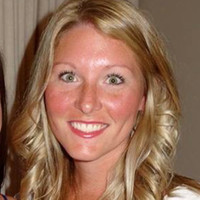Medically reviewed by Meghan Maynard Harlan. Last updated on February 16, 2025
General Illness Information
Common Name:
ANXIETY (generalized anxiety disorder)
Medical Term: None Specified
Description: Generalized anxiety disorder (G.A.D.) is commonly known as anxiety disorder and is classified as an anxiety state. It comprises of excessive, almost daily anxiety and worry- lasting 6 months or longer. Anxiety can be about variety of activities or events. Other components of anxiety states are panic disorder, obsessive disorder, and post-trauma stress disorder.
Anxiety is a vague uncomfortable feeling of fear, dread, or danger from an unknown cause. It afflicts 5% of the population. Women are twice as likely to be affected by this disorder than men. Often begins in childhood or adolescence but may start at any age.
Causes:
- Psychological, physiologic and genetic factors play a part in anxiety neurosis.
- An activation of the body’s defense mechanisms for a fight or flight.
- Excess adrenaline is discharged from the adrenal glands, and an adrenaline breakdown product (catecholamines) eventually affects various parts of the body, causing anxiety reactions.
Prevention:
Determine what stressful or potentially harmful situation is causing the anxiety. Deal directly with it. Consider lifestyle changes to reduce stress and learn relaxation techniques.
Signs & Symptoms
- Twitching or trembling, or feeling shaky.
- Muscle tension; headaches
- Sleepiness and restlessness.
- Easy fatigability.
- Shortness of breath or smothering sensations.
- Rapid breathing and heartbeat.
- Sexual impotence.
- Dry mouth; swallowing difficulty or hoarseness.
- Dizziness or faintness.
- Nausea; diarrhea; weight loss.
- Feeling that something undesirable or harmful is about to happen.
- Hot flashes or chills.
- Frequent urination.
- Irritability.
- Nightmares.
- Difficulty concentrating.
- Absence of other causative factors e.g. hyperthyroidism, caffeine intoxication, addiction to cocaine etc.
Risk Factors
- Stress from any source.
- Family history of neurosis.
- Fatigue or overwork.
- Recurrence of situations that have been previously stressful or harmful.
- A medical illness.
- Lack of social support.
Diagnosis & Treatment
General Measures:
- Some laboratory studies may be done to rule out medical conditions that produce anxiety, such as hyperthyroidism. Laboratory tests are usually normal.
- Obtain psychotherapy to understand the specific but unconscious threat or source of stress.
- Learn techniques, including biofeedback and relaxation therapy, to reduce muscle tension.
- Follow a regular, energetic fitness-routine using aerobic exercise.
- Additional information available form the National Institute of mental health (NIMH), National Anxiety Awareness Program, 9000 Rockville Pike, Bethesda, ND 20892., (800)64-PANIC.
Medications:
- Anti-anxiety drugs such as benzodiazepines may be prescribed on a short-term basis. Buspirone is another effective medication. Unlike benzodiazepines, it is less likely to cause physical dependence. However, buspirone may take 2 weeks or more to start working.
- Antidepressants such as the SSRI’S may be prescribed for panic disorders.
- Clomipramine or other medications such as the SSRI’S (serum serotonin reuptake inhibitors) may be prescribed for obsessive-compulsive disorder.
- New medications expected as a result of intensive research.
Activity:
Stay active. Physical exertion helps reduce anxiety.
Diet:
No special diet. Avoid caffeine and other stimulants and alcohol.
Possible Complications:
- Untreated anxiety may lead to neuroses, such as phobias, compulsions or hypochondriasis.
- A sudden increase in anxiety may lead to panic and violent escape behavior.
- Dependence on drugs.
Prognosis
Anxiety can usually be controlled with medical and or psychological therapy. Overcoming anxiety often results in a richer, more satisfying life.



